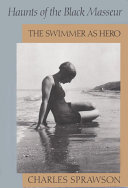
Haunts of the Black Masseur: The Swimmer as Hero PDF
320 Pages·2012·14.843 MB·other
Most books are stored in the elastic cloud where traffic is expensive. For this reason, we have a limit on daily download.
Preview Haunts of the Black Masseur: The Swimmer as Hero
Description:
In a masterful work of
cultural history, Charles Sprawson, himself an obsessional swimmer and
fluent diver, explores the meaning that different cultures have attached
to water, and the search for the springs of classical antiquity. In
nineteenth-century England bathing was thought to be an instrument of
social and moral reform, while in Germany and America swimming came to
signify escape. For the Japanese the swimmer became an expression of
samurai pride and nationalism. Sprawson gives is fascinating glimpses of
the great swimming heroes: Byron leaping dramatically into the surf at
Shelley’s beach funeral; Rupert Brooke swimming naked with Virginia
Woolf, the dark water “smelling of mint and mud”; Hart Crane
swallow-diving to his death in the Bay of Mexico; Edgar Allan Poe’s lone
and mysterious river-swims; Leander, Webb, Weissmuller, and a host of
others. Informed by the literature of Swinburne, Goethe, Scott
Fitzgerald, and Yukio Mishima; the films of Riefenstahl and Vigo; the
Hollywood “swimming musicals” of the 1930s; and delving in and out of
Olympic history, Haunts of the Black Masseur is an enthralling
assessment of man—body submerged, self-absorbed. It is quite simply the
best celebration of swimming ever written, even as it explores aspects
of culture in a heretofore unimagined way.
See more
The list of books you might like
Most books are stored in the elastic cloud where traffic is expensive. For this reason, we have a limit on daily download.
